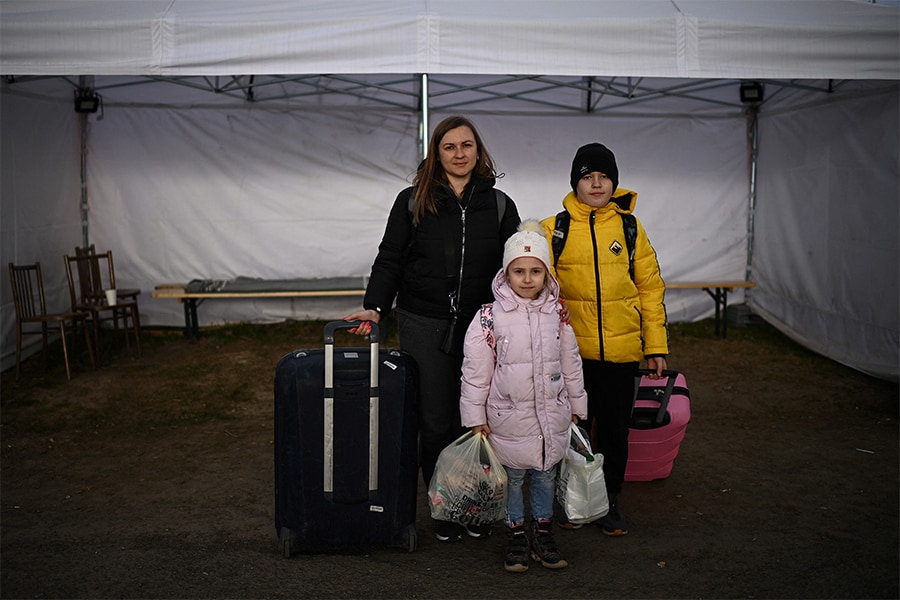
Stay or go? Ukraine refugees torn between safety and home
Women and children are still pouring out of a land being pummelled by what one called Russia's "creatures from Hell" but hundreds of thousands of refugees are returning home, determined to stay. Many others have had to flee for a second time, having thought it was safe to go back only to find it was not
 Ukrainian refugee Ganna Pastushenko (L), a 35-year-old accountant from Odessa, poses for a picture along with her children Timur (R), 11, and Dasha, (C), 6, as they wait for transportation after crossing the Ukrainian-Slovakian border into Slovakia at the Vysne Nemecke border crossing, eastern Slovakia. A heartbreaking human drama is playing out along Ukraine's borders. (Credit: CHRISTOPHE ARCHAMBAULT / AFP)
Ukrainian refugee Ganna Pastushenko (L), a 35-year-old accountant from Odessa, poses for a picture along with her children Timur (R), 11, and Dasha, (C), 6, as they wait for transportation after crossing the Ukrainian-Slovakian border into Slovakia at the Vysne Nemecke border crossing, eastern Slovakia. A heartbreaking human drama is playing out along Ukraine's borders. (Credit: CHRISTOPHE ARCHAMBAULT / AFP)
Sighetu Marmatiei, Romania: A heartbreaking scene is playing out along Ukraine's borders—fleeing refugees pass the homesick going back, while others who left and then returned flee for their lives for a second time.
Women and children are still pouring out of a land being pummelled by what one called Russia's "creatures from Hell".
But hundreds of thousands of refugees are returning home, determined to stay.
Many others have had to flee for a second time, having thought it was safe to go back only to find it was not.
An AFP team has been travelling along the country's frontiers to report the aftermath of the biggest exodus in Europe since World War II—more than five million people according to the UN.







